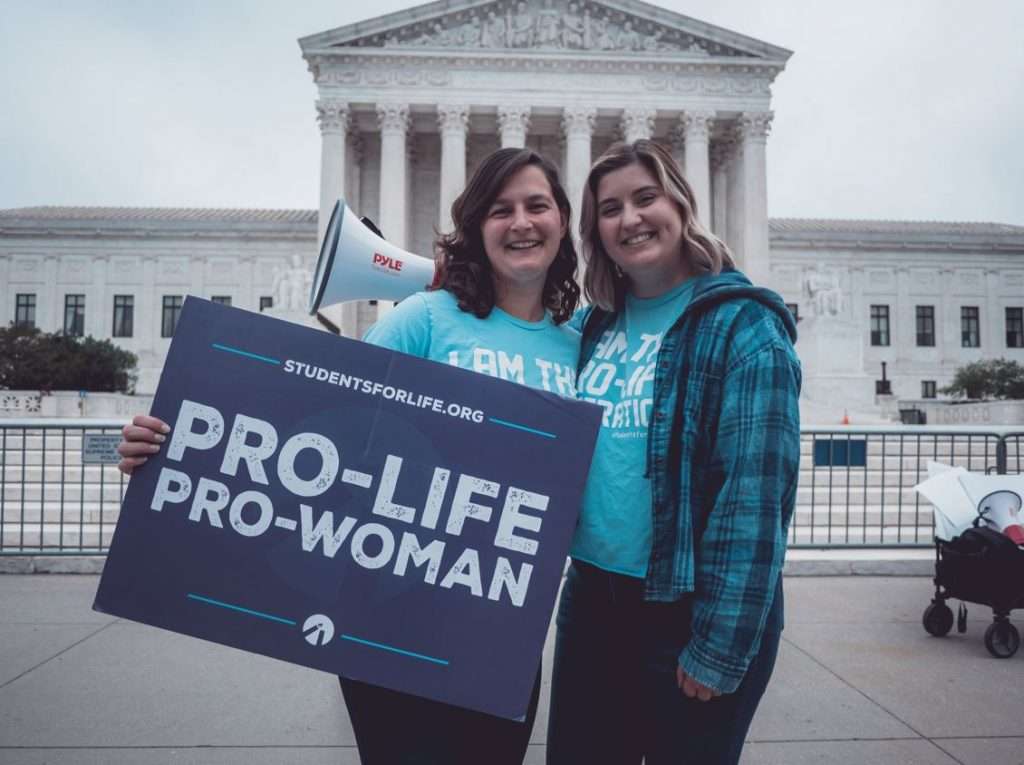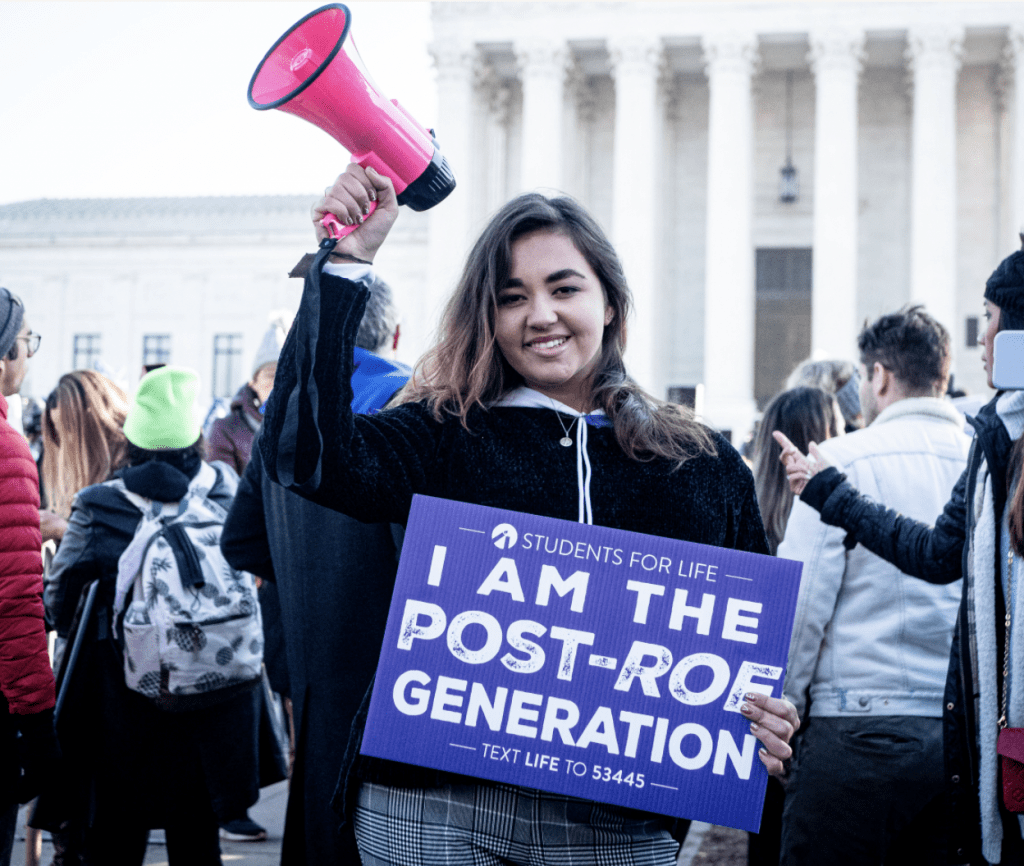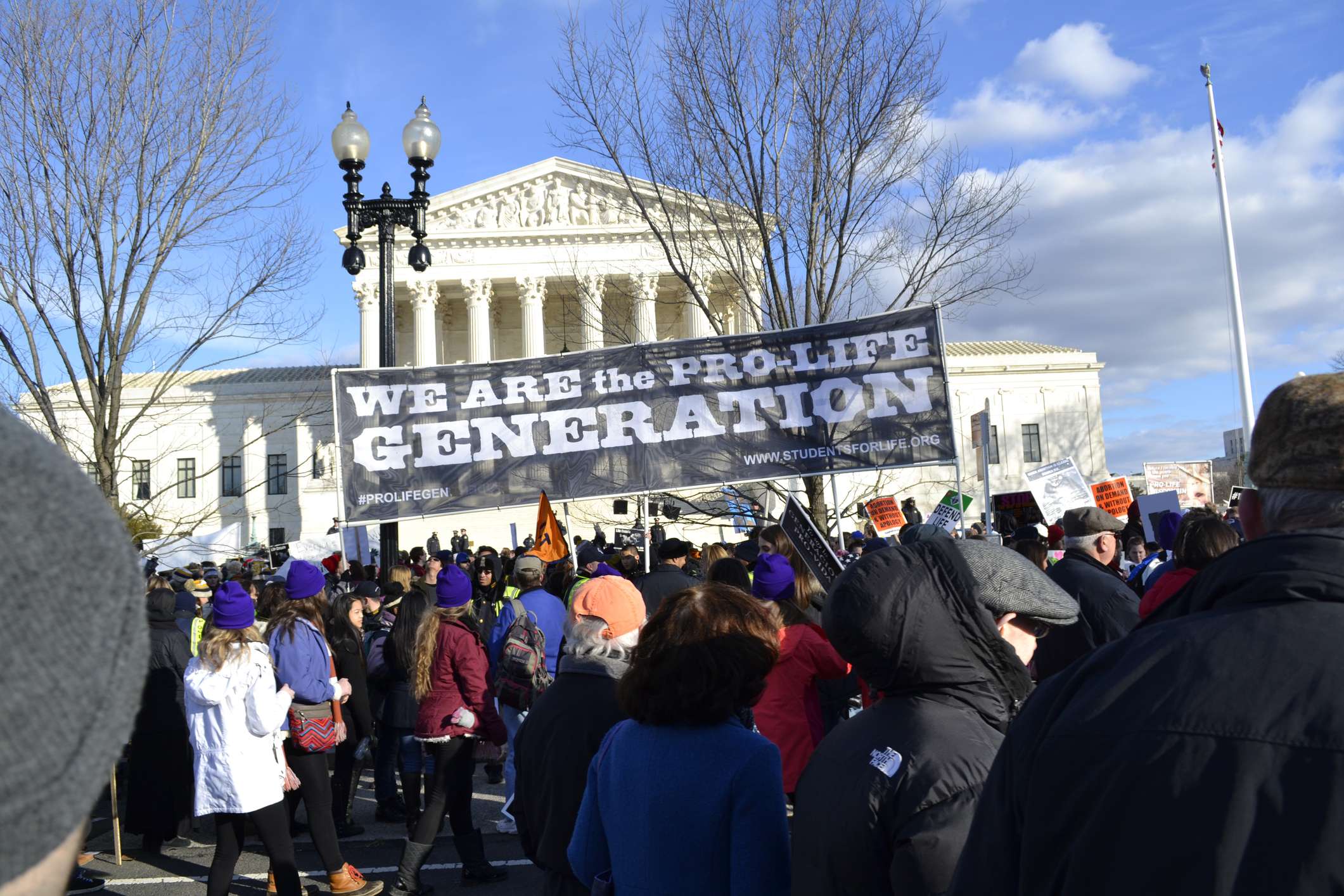

Guest Post by Theresa Maska, SFLAction’s Texas State Captain and a member of the Austin Students for Life group.
GUEST POST: We’ve said goodbye to 2021, but many of us are still thinking about it. For me, one of my most important moments in 2021 was the day that I testified at the Texas State Capitol in July—I will never forget it.
When it was my turn at the microphone, I stepped up and told our government leaders my name, my position on the bill and my age: Theresa Maska, in support of S.B. 4, 16 years old. I had practiced what I was going to say next, and despite being nervous, I was determined I would use my two minutes of allotted time to stand up for the preborn and the women harmed by chemical abortions.
However, in the middle of my speech as I explained the trauma of chemical abortion, I unexpectedly started crying. This had never happened to me during the many times I had practiced my testimony, and no one who testified before had cried. I was scared my passionate emotions had blown it—yet my very raw testimony was far from a dud.
Right after my testimony, Senator Lucio, the co-author of S.B. 4, said, “I have to tell you, I’ve been here thirty-five years, and this is one of the proudest moments I’ve spent in this Capitol. To listen to you, your young club that is here today, and others who testified who have worked hard during the years that I’ve been here—veterans I call them—but to see you here at your age gives me great hope.” Even Senator Lucio seemed to get choked up because giving the preborn a voice in the Capitol with raw emotion does not take away from a testimony but shows the humanity of the preborn.
Pro-life youth carry a special impact when we testify, and we must use this voice to stand up for the unborn. I know this may sound terrifying, hard, or just confusing, but it’s honestly so important in the fight for life. That’s why it is my goal to give you a map and remove some fears along the way. Here’s how you too can testify in front your leaders.

If you are involved in Students for Life of America, a great first step is to reach out to your Regional Coordinator and let them know you would like to testify. They can contact you when they need students from Students for Life Action to testify, connect you to your State Captain (a student involved with public policy in your state), or give you helpful information about how to testify in your state. Make sure to ask where you can go to learn about new opportunities to testify. In my home state of Texas, for example, you can learn about new testifying opportunities by checking senate.texas.gov and house.texas.gov. On these websites, you can review the items on the agenda for the House and Senate. Once you find a bill about an issue you are passionate about, it is time to prepare your testimony.
Preparing testimony is not so overwhelming when you break it down. It’s usually pretty short. For example, in Texas they often give you a maximum of two minutes to speak. You can begin writing testimony before even knowing which bill you are going to testify on and then you can simply adjust it to fit the bill.
In your testimony, make sure to bring up the main effects of the specific bill instead of focusing solely on the broad pro-life picture. Personal stories can also be effective in motivating the senators or representatives you are testifying before. Sometimes, all they need is a bit of encouragement and a rekindled flame to give them the courage to vote pro-life. Practice giving your speech with a timer because going over the time limit can negatively impact you and following the rules shows that you care and have come prepared.

There are a few more things to keep in mind about testifying. The first is to be prepared for the hearing to get rescheduled and for it to take a while. The hearing may get rescheduled even just hours beforehand so remember to stay on top of the schedule. Next, after you give your testimony, you may be asked questions. You can prepare for this by familiarizing yourself with the bill, knowing the source and credibility of any data you cite, and knowing your position well. However, don’t sweat this too much, and do not think you need to know the answer to everything. It may be best to simply say you do not know the answer or to offer to find the answer and send it later.
Most importantly, remember that your testimony does not have to be perfect. Being a great public speaker is nice, but your voice is already perfect for representing the preborn who have no voice. And if anything happens during the testimony, it is okay. The senators and representatives are human too. And who knows—I thought crying was a mess-up on my part, and it wasn’t. Stay positive about your testimony.

The beauty of the American legislative system is that it lets ordinary citizens give their voice to their ordinary leaders. The voice of the young can be the most truly impactful, and our government leaders need to hear us. By reaching out to your Regional Coordinator, learning how to write a testimony, and presenting your testimony at the hearing, you give the unborn a voice and government leaders hope and encouragement to take pro-life actions. Be part of what Senator Lucio called, “the most important army I’ve ever seen.”
To get into contact with your Regional Coordinator, just email [yourstate]@studentsforlife.org (For example, if you are a student in Georgia, you would email [email protected])
Theresa Maska is SFLA’s Texas State Captain and a member of the Austin Students for Life group.
Share this post
Recent Posts

National Celebrate Life Weekend Dominates D.C.: Just Look at the Coverage
01 Jul 2025
The Pro-Life Generation REACTS: “Big, Beautiful” Budget Bill Vote One Step Closer to Defunding Planned Parenthood & ALL Abortion Vendors
01 Jul 2025
News: FIVE Lawmakers Recognized for Defending Life
30 Jun 2025
